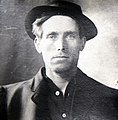Portal:Organized Labour

Introduction

- In trade unions, workers campaign for higher wages, better working conditions and fair treatment from their employers, and through the implementation of labour laws, from their governments. They do this through collective bargaining, sectoral bargaining, and when needed, strike action. In some countries, co-determination gives representatives of workers seats on the board of directors of their employers.
- Political parties representing the interests of workers campaign for labour rights, social security and the welfare state. They are usually called a labour party (in English-speaking countries), a social democratic party (in Germanic and Slavic countries), a socialist party (in Romance countries), or sometimes a workers' party.
- Though historically less prominent, the cooperative movement campaigns to replace capitalist ownership of the economy with worker cooperatives, consumer cooperatives, and other types of cooperative ownership. This is related to the concept of economic democracy.
The labour movement developed as a response to capitalism and the Industrial Revolution of the late 18th and early 19th centuries, at about the same time as socialism. The early goals of the movement were the right to unionise, the right to vote, democracy and the 40-hour week. As these were achieved in many of the advanced economies of western Europe and north America in the early decades of the 20th century, the labour movement expanded to issues of welfare and social insurance, wealth distribution and income distribution, public services like health care and education, social housing and common ownership. (Full article...)
Selected article

A credit union is a member-owned nonprofit cooperative financial institution. They may offer financial services equivalent to those of commercial banks, such as share accounts (savings accounts), share draft accounts (cheque accounts), credit cards, credit, share term certificates (certificates of deposit), and online banking. Normally, only a member of a credit union may deposit or borrow money. In several African countries, credit unions are commonly referred to as SACCOs (savings and credit co-operatives).
Worldwide, credit union systems vary significantly in their total assets and average institution asset size, ranging from volunteer operations with a handful of members to institutions with hundreds of thousands of members and assets worth billions of US dollars. In 2018, the number of members in credit unions worldwide was 375 million, with over 100 million members having been added since 2016.
Leading up to the financial crisis of 2007–2008, in 2006, 23.6% of mortgages from commercial banks were subprime, compared to only 3.6% of those from credit unions, and banks were two and a half times more likely to fail during the crisis. American credit unions more than doubled lending to small businesses between 2008 and 2016, from $30 billion to $60 billion, while lending to small businesses overall during the same period declined by around $100 billion. In the US, public trust in credit unions stands at 60%, compared to 30% for big banks. Furthermore, small businesses are 80% more likely to be satisfied by a credit union than with a big bank. (Full article...)July in Labor History
Significant dates in labour history.
- July 01 - The Great Railroad Strike of 1922 began in the U.S.; the Regina Riot occurred during the On-to-Ottawa Trek in Canada in 1935; Lee Pressman was born; P. H. McCarthy died; the Textile, Clothing and Footwear Union of Australia was founded; the Westmoreland County coal strike of 1910–11 ended in the U.S.
- July 02 - William J. McCarthy was born; Edward Ikem Okeke died; the U.S. Supreme Court decided Brown v. Hotel and Restaurant Employees
- July 03 - The United States Army began suppression of the American Railway Union during the Pullman Strike in 1894
- July 04 - The Freedom of Association and Protection of the Right to Organise Convention came into force
- July 05 - "Bloody Thursday" occurred during the 1934 West Coast waterfront strike in the U.S.
- July 06 - Peter J. McGuire was born; the Homestead Strike culminated with a battle between Pinkerton agents and striking workers
- July 07 - Eugene V. Debs was arrested during the Pullman Strike in 1894; the 1998 Puerto Rican general strike began
- July 08 - Jesse Simons died
- July 09 - Jackie Presser died; the Transport Workers Union of America won the "Squeegee Strike" at the IRT in 1935
- July 10 - Sidney Hillman died; George W. Taylor was born; Donald Richberg was born
- July 11 - Frank Duffy died; Sigurd Lucassen was born
- July 12 - The British Columbia Teachers' Federation was founded; Arnold Miller died; Clara Lemlich died; Edgar Nixon was born; the Bisbee Deportation occurred in the U.S. in 1917
- July 13 - The U.S. Steel recognition strike of 1901 began
- July 14 - The Great Railroad Strike of 1877 began in the U.S.
- July 15 - The Steel strike of 1959 began in the U.S.; Set Persson died; Michael Costa was born; the Vancouver Police Union was founded
- July 16 - Frank Rudolph Crosswaith was born
- July 17 - The Cape Breton coal strike of 1981 began in Canada
- July 18 - William J. McCarthy defeated Weldon Mathis as Teamsters president in 1988; Robert Georgine was born; the Right to Organise and Collective Bargaining Convention, 1949, one of the two primary labour conventions of the ILO, came into force
- July 19 - The Hatch Act of 1939 was extended to cover state and local government workers in the U.S.; Benjamin Gitlow died; Rhoda Williams died
- July 20 - The Newsboys' strike of 1899 began
- July 22 - Patrick J. Campbell was born; the 2004–05 NHL lockout ended in the U.S. and Canada
- July 23 - Emma Tenayuca died
- July 24 - The 1952 steel strike ended in the U.S.; Ben Gold died; the Alliance for Labor Action is formed
- July 25 - Farrell Dobbs was born; the Service Employees International Union and the Teamsters announced their intention to leave the AFL–CIO; labor attorney Arthur Goldberg resigned as Associate Justice of the United States Supreme Court
- July 26 - Elias Motsoaledi was born; William Trenwith died; the Americans with Disabilities Act of 1990, banning workplace discrimination based on disability, became law
- July 27 - The Polish film Man of Iron was released in 1981
- July 28 - Harry Bridges was born; the 1913 Paterson silk strike ended in the U.S.; Florence Cohen was born
- July 29 - The Sailors' Union of the Pacific was formed; the United Food and Commercial Workers disaffiliated from the AFL–CIO
- July 30 - Jimmy Hoffa disappeared in 1975; the Arizona copper mine strike of 1983 began in the U.S.
- July 31 - Edward T. Hanley resigned as president of HERE after a corruption scandal
More Did you know (auto-generated)
- ... that a 1994 lightning strike in Egypt led to 469 deaths after oil tanks were ignited and flooded the village of Dronka with burning fuel?
- ... that on March 2, 2022, 86 percent of workers in New York City's REI store voted in favor of the outdoor recreation retailer's first ever trade union, REI Union SoHo?
- ... that Surinamese trade unionist Louis Doedel was involuntarily committed to a psychiatric hospital by the governor-general for 43 years?
- ... that the 1913 Studebaker strike is regarded as the first major labor strike in the automotive industry?
- ... that in 1977, Appalachian folk singer Phyllis Boyens performed at a Christmas benefit concert to support Kentucky coal miners who had been on strike for 17 months?
- ... that following the ban of its labour unions in 1934, the Romanian United Socialist Party would rely on its youth and women's wings for political action?
Related Portals
Selected image
Selected Quote
Long ago we stated the reason for labor organizations. We said that they were organized out of the necessities of the situation: that a single employee was helpless in dealing with an employer; … that union was essential to give the laborers opportunity to deal on equality with their employer."
|
— Charles Evans Hughes |
Did you know
- ...that even though the 1952 steel strike lasted 53 days and cost the U.S. $4 billion in lost economic output, it was settled on nearly the same terms offered by the union at the strike's beginning?
- ...that the four large housing cooperatives that make up Cooperative Village on the Lower East Side of Manhattan were sponsored and financed by trade unions with ties to the Socialist Party of America?
- ...that Indian trade unionist Dutta Samant led an estimated 200,000 workers on a year-long strike in 1982, causing the exodus of the textile mill industry from Mumbai?
Topics
Get involved
Associated Wikimedia
The following Wikimedia Foundation sister projects provide more on this subject:
-
Commons
Free media repository -
Wikibooks
Free textbooks and manuals -
Wikidata
Free knowledge base -
Wikinews
Free-content news -
Wikiquote
Collection of quotations -
Wikisource
Free-content library -
Wikiversity
Free learning tools -
Wiktionary
Dictionary and thesaurus















































































